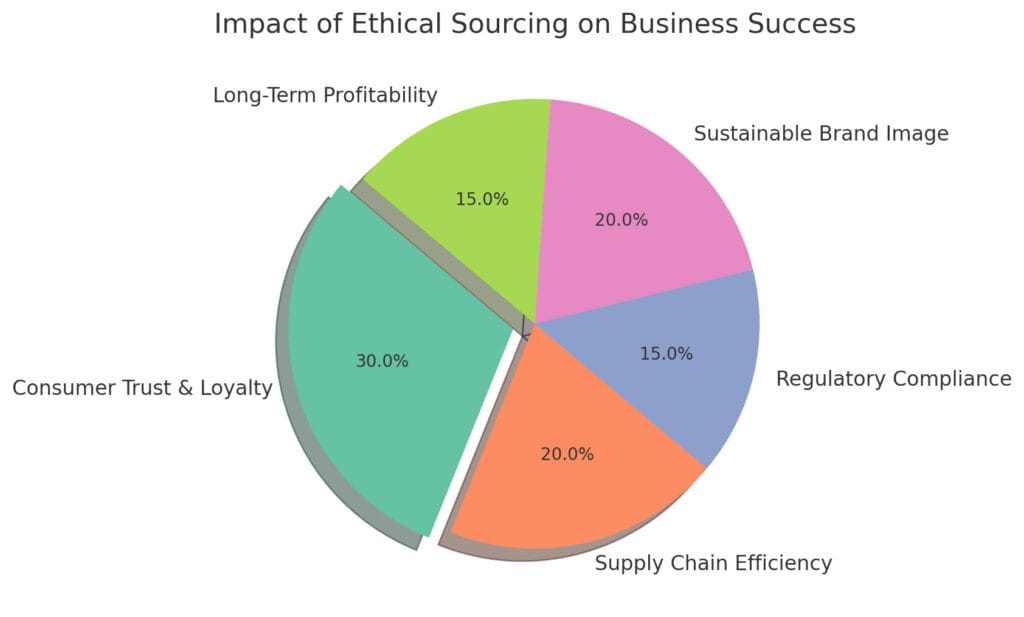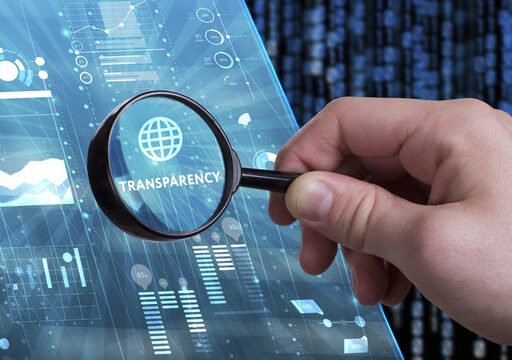Ethical sourcing and transparency are becoming crucial elements affecting customer preferences and company reputations in today’s global economy. More and more consumers worry about the things they buy and where they come from. They are also concerned about the manufacturing process and its impact on the environment. In addition to being a moral requirement, companies may gain a competitive edge by using ethical sourcing methods and maintaining supply chain transparency. The importance of ethical sourcing and transparency is examined in this article. It also explores how businesses may improve supply chain transparency and includes a case study that highlights the advantages of responsible sourcing.
The Importance of Ethical Sourcing and Transparency
Ethical sourcing means purchasing goods and resources in a way that upholds workers’ rights and guarantees secure working conditions. It also reduces the supply chain’s environmental impact. To ensure accountability and foster customer trust, transparency means being open about sourcing procedures. This includes disclosing information about the names of suppliers and the sources of products.
It is impossible to overestimate the significance of openness and ethical sourcing. They are essential to establishing credibility with investors, customers, and other stakeholders. Businesses that prioritize these procedures can better reduce the risks of supply chain interruptions, environmental infractions, and unethical labor practices. Additionally, a company’s reputation is enhanced by ethical sourcing and transparency, which attracts customers who are increasingly basing their purchases on ethical concerns.
Enhancing Supply Chain Transparency
Enhancing supply chain transparency is essential for companies looking to use ethical sourcing methods. It entails a few crucial steps:
- Supply Chain Mapping: The first step to transparency is to comprehend each step of the supply chain, from the extraction of raw materials to the delivery of finished goods. Businesses are able to recognize possible ethical issues and take proactive measures to resolve them thanks to this thorough mapping.
- Creating Clear Standards: By creating and disseminating clear ethical standards for suppliers, the firm makes sure that everyone is aware of its expectations with regard to business ethics, labor practices, and environmental effect.
- Frequent Audits and Assessments: Verifying adherence to ethical standards is facilitated by conducting routine audits of suppliers. These evaluations can help pinpoint areas in need of development and guarantee that vendors follow established procedures.
- Leveraging Technology: Businesses may improve traceability by using technologies like blockchain, which enable them to monitor items all the way through the supply chain and guarantee transparency.
- Engaging Stakeholders: Promoting a culture of responsibility and ongoing development requires including stakeholders, such as workers, customers, and investors, in conversations about ethical sourcing and transparency.

Case Study: Unilever’s Commitment to Ethical Sourcing and Transparency
The multinational consumer products corporation Unilever offers a strong illustration of the advantages of transparent and ethical sourcing. The firm has incorporated sustainable principles, such as ethical labor practices and responsible raw material procurement, into its business strategy. Unilever revealed in 2019 that its “Sustainable Living” brands expanded 69% faster than the company’s overall growth, underscoring the strong correlation between corporate social responsibility and commercial success.
The strategy used by Unilever shows how ethical sourcing and openness can boost customer confidence, improve brand recognition, and stimulate economic expansion. The company’s dedication to ethical sourcing enhanced its reputation and drew in a larger customer base that places a higher value on sustainability.
Case Study: IKEA’s Ethical Sourcing and Transparency Initiatives
One of the biggest furniture retailers in the world, IKEA, has made great progress in ethical sourcing and transparency to guarantee sustainability throughout its worldwide supply chain. The firm has pledged to ethically source its raw materials, especially wood and cotton, in recognition of the negative effects that furniture manufacture has on the environment and society. IKEA makes sure that more than 99 percent of its timber is recycled or FSC-certified in order to fight deforestation. By attracting eco-aware customers, this program not only preserves trees but also enhances the company’s reputation.
IKEA places a high priority on supply chain openness in addition to sustainable material procurement, publicly disclosing its suppliers and sustainability initiatives. The IWAY Supplier Code of Conduct establishes stringent moral standards for fair labor practices, equitable compensation, and environmental stewardship. IKEA guarantees that its customers may trust the ethical origins of its goods and holds suppliers accountable by upholding openness. IKEA shows via these efforts how ethical sourcing and openness can boost long-term company profitability, reduce risks, and increase brand loyalty.
Comparison of Ethical vs. Non-Ethical Sourcing
| Aspect | Ethical Sourcing & Transparency | Non-Ethical Sourcing |
|---|---|---|
| Labor Practices | Fair wages, safe working conditions, no child labor | Exploitative wages, unsafe conditions, possible child labor |
| Environmental Impact | Sustainable materials, reduced carbon footprint, responsible sourcing | Deforestation, pollution, excessive waste |
| Consumer Trust | High transparency, strong brand loyalty | Low transparency, potential reputation risks |
| Supply Chain Accountability | Regular audits, clear supplier guidelines | Lack of oversight, hidden supplier issues |
| Business Growth | Long-term profitability, better market positioning | Short-term profits but risk of legal and reputational damage |
Pie Chart: The Impact of Ethical Sourcing on Business Success

This pie chart shows how several elements affect transparency and ethical sourcing in company performance. It emphasizes how crucial long-term profitability, compliance, supply chain effectiveness, consumer trust, and brand image are.
Conclusion
Businesses that want to succeed in the ethical market of today must embrace ethical sourcing and transparency. Gaining a competitive edge, controlling risks, and fostering trust all depend on these strategies. Businesses that emphasize transparency and ethical sourcing are better positioned to satisfy customer demands, build their brand, and achieve long-term success.
Businesses may gain a practical understanding of the advantages of ethical sourcing and transparency. They can do this by studying industry titans such as Unilever. It takes a concentrated effort to map supply chains, set clear standards, and carry out frequent audits. Additionally, using technology and involving stakeholders are essential to putting these principles into action. Nonetheless, the benefits—which include better financial performance and heightened customer trust—make this investment valuable.








